One of the biggest mistakes made by travellers and yachtsmen in countries like this, is giving bribes to those asking for them. In this way, they contribute to upholding the system of corrupt regimes. If everybody says no, a large step forward will have been taken in the struggle against corruption and “gift cultures”. This is not only valid for Morocco, but also in many other countries where this is rampant. The harbour itself in Safi was not very fit for sailing yachts. Swell, difficult access to fresh water and diesel, and fishing boats steaming back and forth at too high speeds. But we managed to shower and eat a good dinner at the hotel Farah, we bought new provisions, wrote postcards and went walking in the city. And we met Jens and Sandra from Germany on their boat “Hummel”, two very nice people. We sailed together to the port of Essaouira to the south, where we arrived in the middle of the night.
That harbour is better entered in daylight! Down to six feet depths, narrow, stony, waves constantly breaking and closing the inlet even in good weather, and very narrow inside the harbour. Thanks to the kind assistance of some teenage kids who came running to our aid, we managed to berth safely. But we were both a bit shaky after having crash dived into the harbour on a roaring surf. The following days we spent strolling around the city, which is very old and beautiful. The Phoenicians were the first to establish a port here. The port makes an appearance in the movie “Kingdom of heaven”, in the scene from Italy.
The city is widely known for its magnificent woodcraft, and we had two new pendulum rudders carved for our wind rudder there, at a very favourable price. It took them two hours to make them, and the quality looks marvellous. We look forward to start using them. As in Safi, the harbour was extremely filthy, and it was very complicated to acquire diesel and fresh water supplies. Luckily, we needed neither.
Following a few lazy days in Essaouira, we and Hummel decided to go together to Lanzarote. The winds were very good, but strong. Hummel ripped her mainsail just after departure, and had to return to port. We went on, and sailed slalom between fishing vessels and their fishing nets, towards Lanzarote. Well into the second night, Rune saw a sharp, white light with an orange tail, flying through the air a few hundred yards from the boat, and then dissolving into thin air just above the ocean.
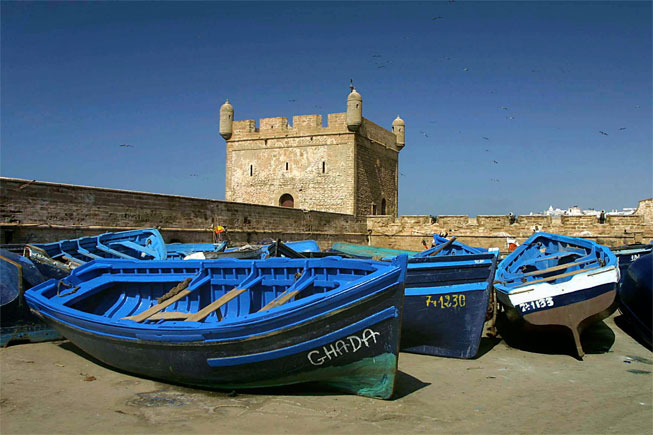
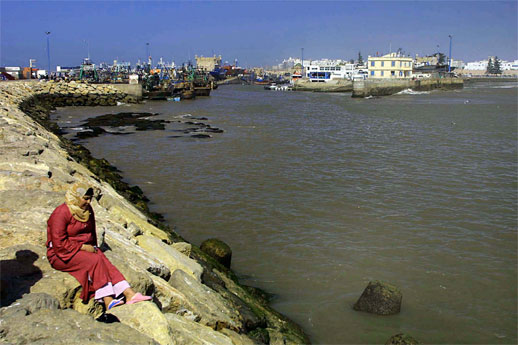
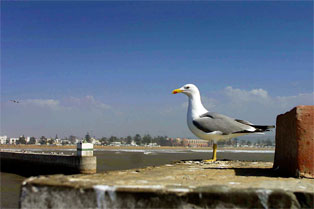


# Morocco is situated in the northernmost part of Africa, between Tunisia and Western-Sahara, which is currently illegally occupied by Morocco. The capital of Morocco is Rabat.
# Aprroximately 33 million people live in Morocco.
# Tourism, fruit crops, chemicals and fisheries are among the main industries.
# Morocco is a monarchy, like Norway. The monarch is Mohammed IV. He is young, and considered as a very progressive statesman, who the people in Morocco put a lot of faith in will modernize the former French colony.
# Morocco has long since occupied Western-Sahara, former Spanish Sahara, for which they have been criticized harshly by the international community. Fighting still rages on between the Moroccan army and the liberation movement Polisario. As of today, no diplomatic solution seems to be in range fro the conflict.
# The currency in Moroccol is Dirham. Bank cards are accepted in many hotels and supermarkets, and there are ATMs everywhere. The price level on food and drinks is around one third of that in Norway.
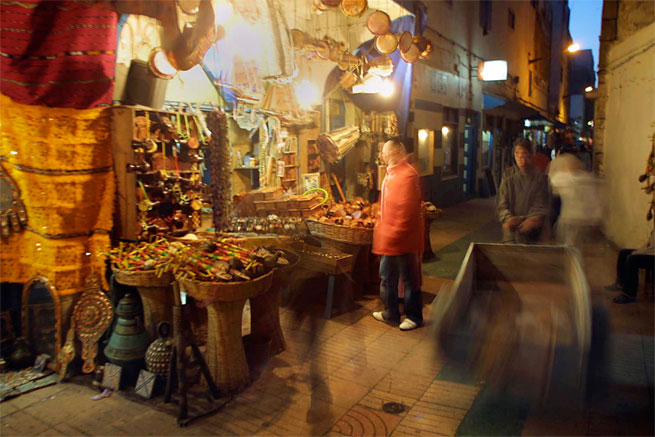
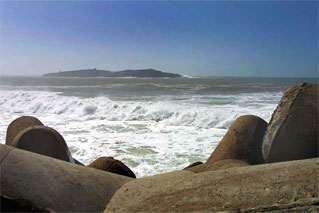

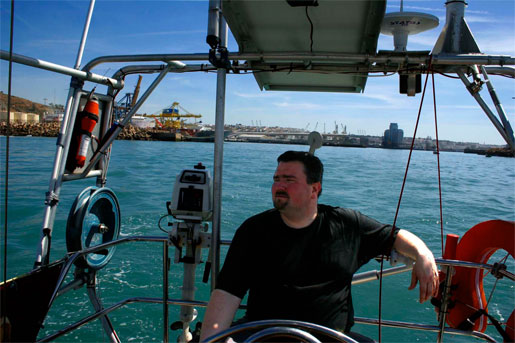
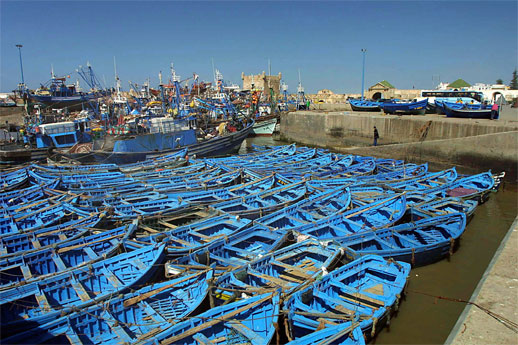
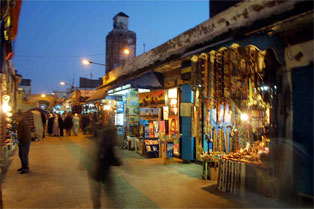
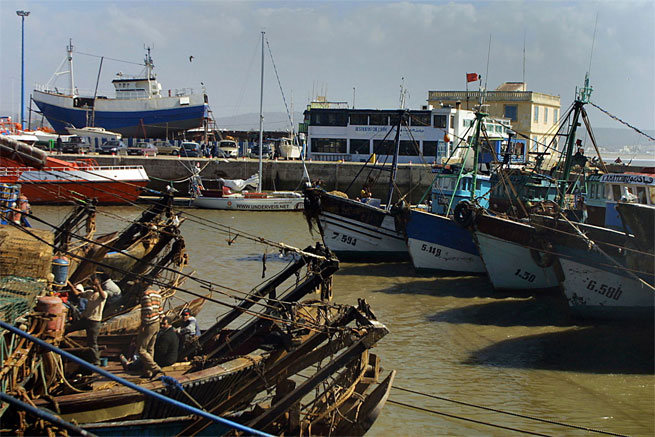
Then every single on of the 5 or 6 uniformed officers pulled us aside and asked if we had a small present for them. Preferrably alcohol or cigarettes. We have very few such commodities onboard, as we are only two persons onboard, and have to do regular watches when we are at sea. But Rune became so confused that he gave one of them a 5 litre box of wine, at a value of 3 dollars. The others left the place empty handed. Already back in Portugal we had heard roomers of the corruption culture rampant in Morocco, but we were still unprepared for such an aggressive way of trying to extract bribes from visitors. But no more. Since then, nobody has received as much as a cigarette from us, without having done something in order to earn it first.
Most of all it resembled a small meteorite, but knowing that more than 6,000 people perish every year in small, open boats trying to escape from Africa to the Canary islands, he woke Finn Olav. We stared together into the dark of night for a while. The winds were strong and there was quite a lot of sea as well in the area. After a while we returned back on course. Rune is quite sure that it was a small meteorite he spotted, but the sense that there might be human beings in distress out there in the dark, was terrible. It will be with us for quite a while. But if it was a meteorite, it was a magnificent sight.
As this is being written, we have spent three days in an expensive, but good marina in Puerto Callera, Lanzarote. We have showered, topped off our fresh water tanks and slept. Now we are going to Las Palmas, a leg we expect to spend less than 24 hours on. There we shall start the preparations for the trip across the Atlantic, a passage of some 2,800 miles, a distance we expect to spend some 22 days to cover.




